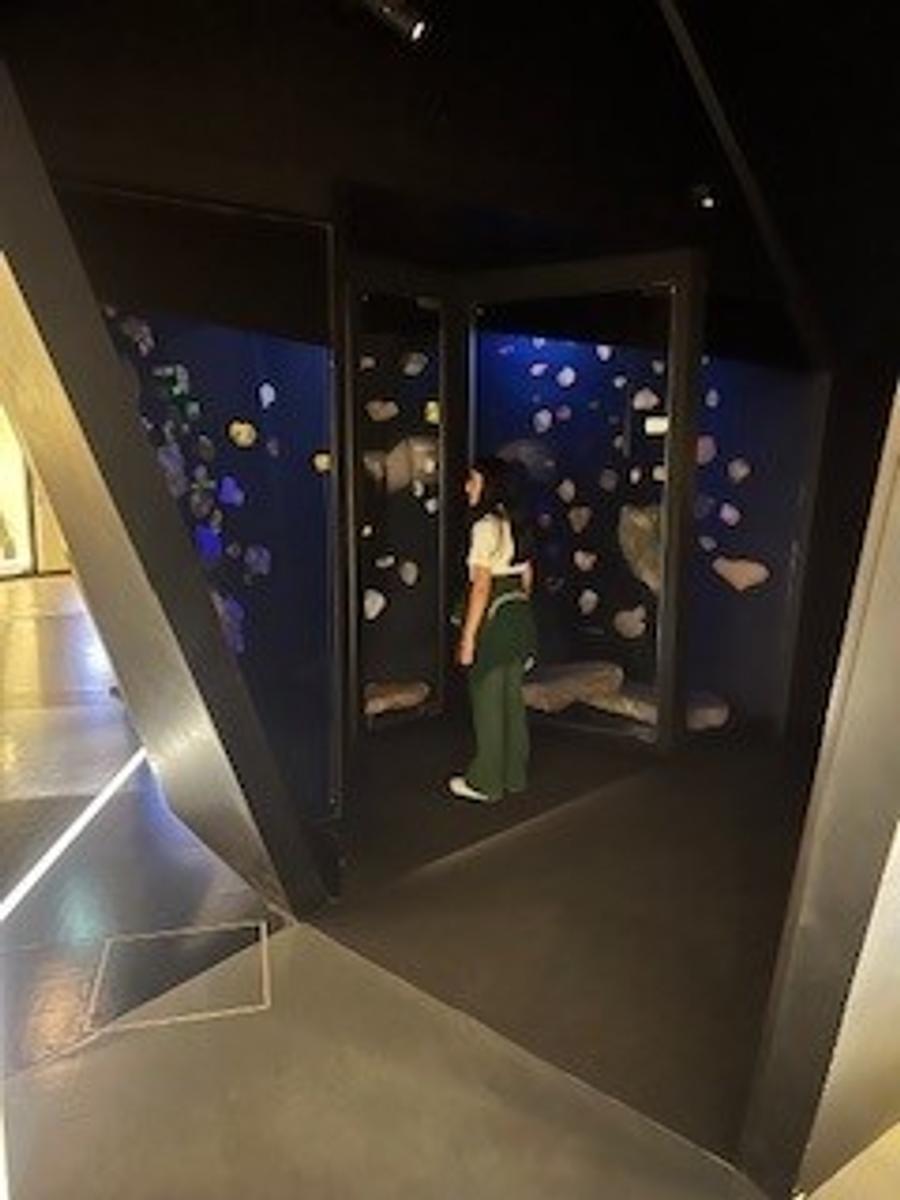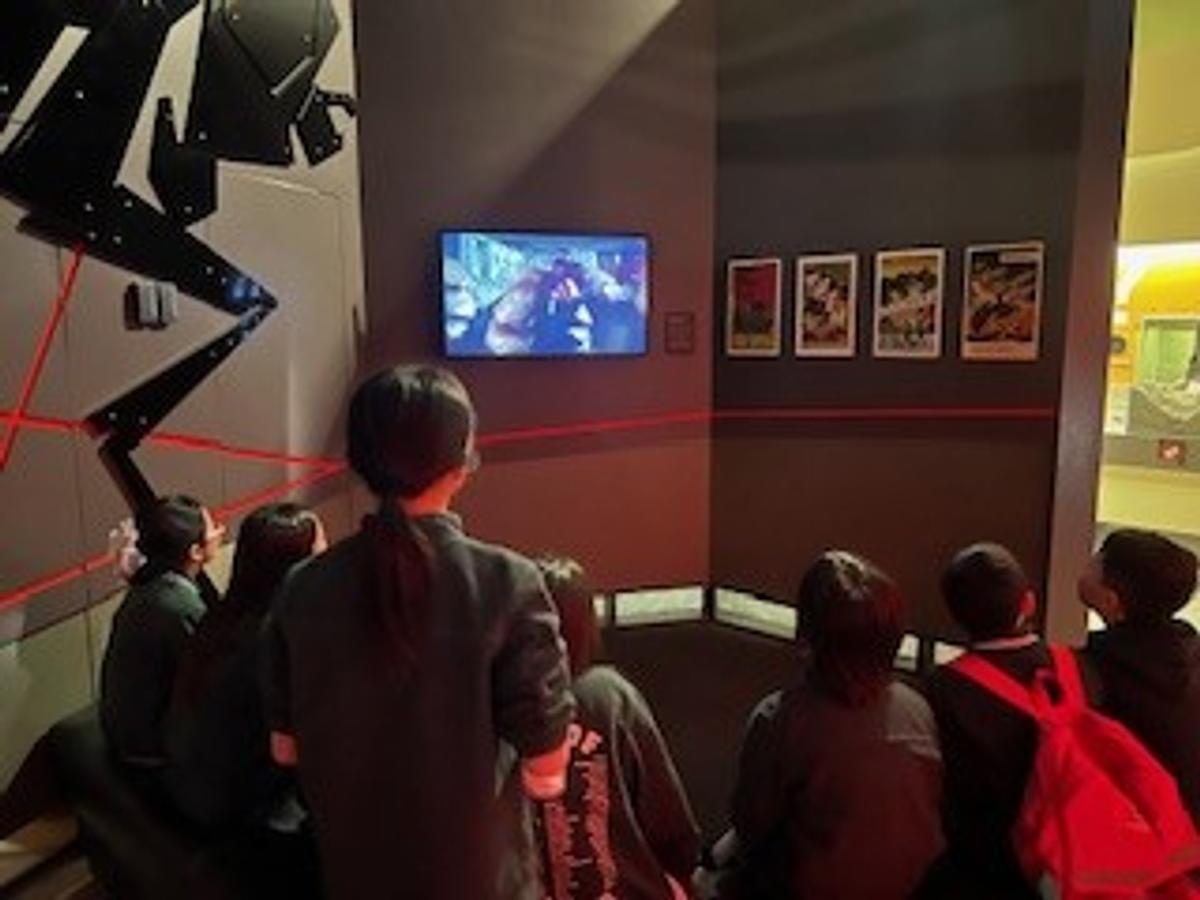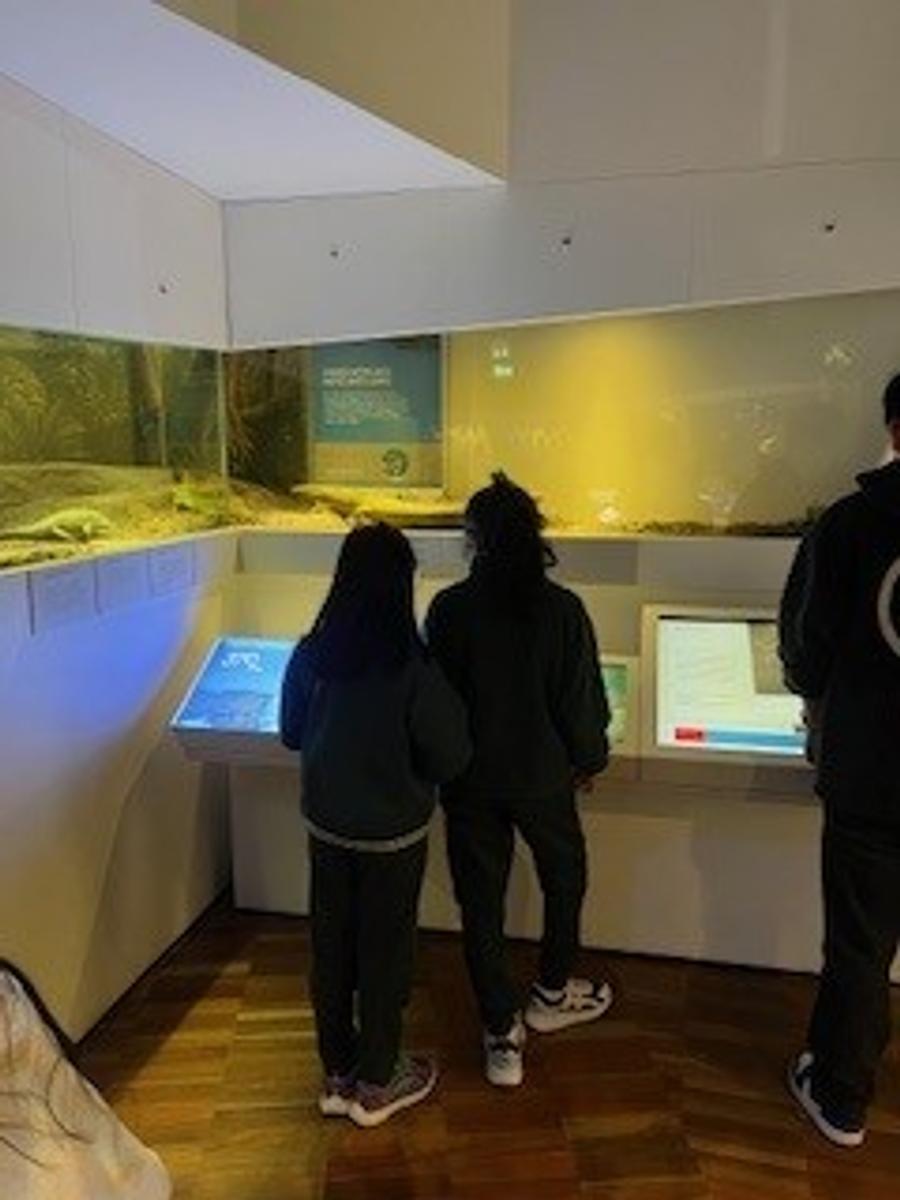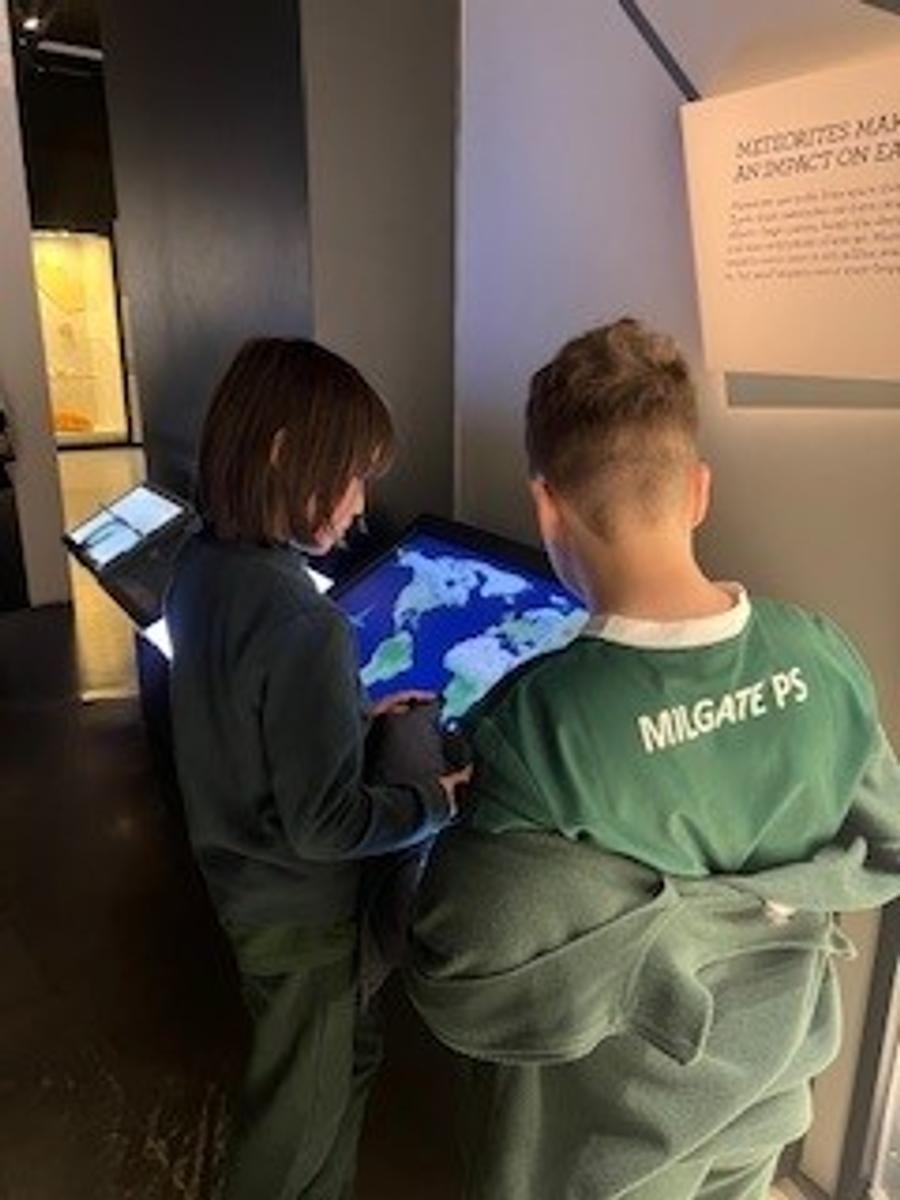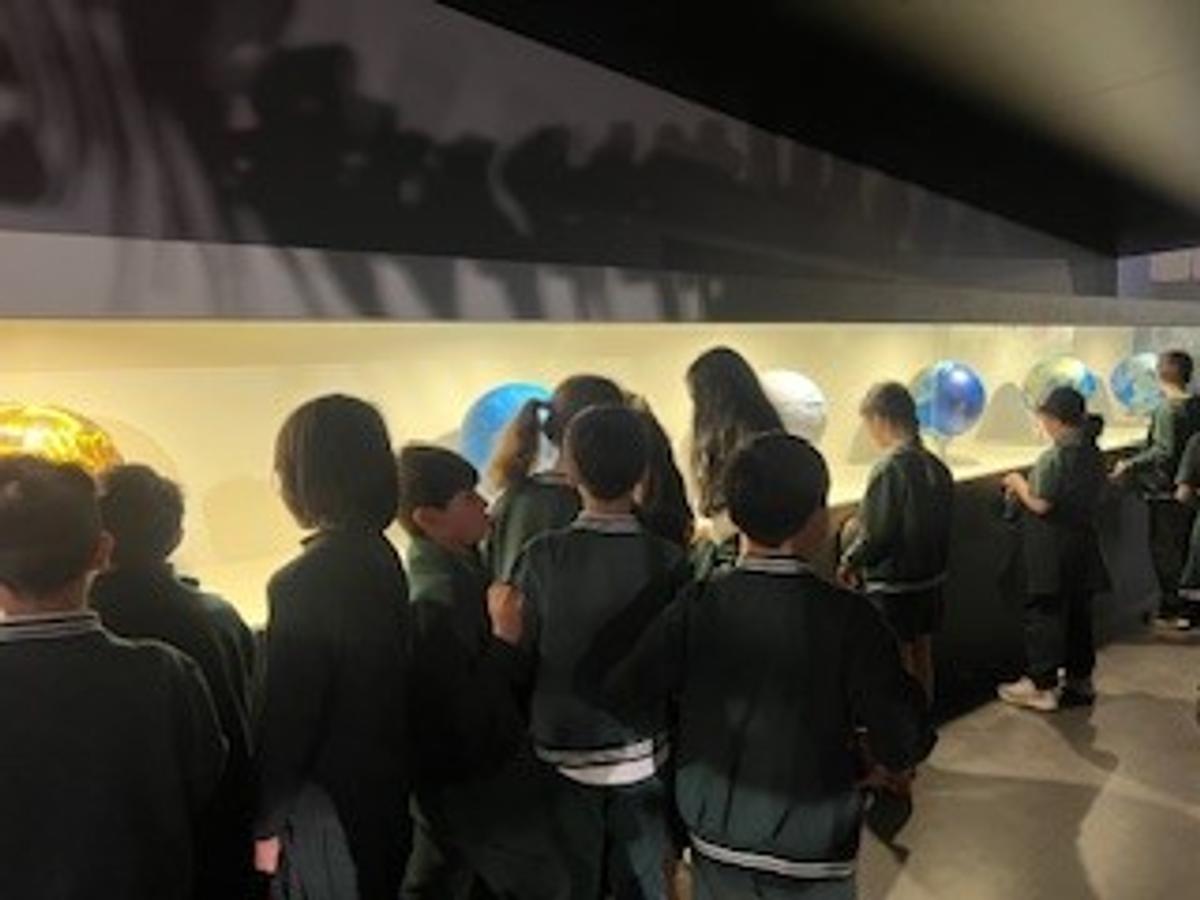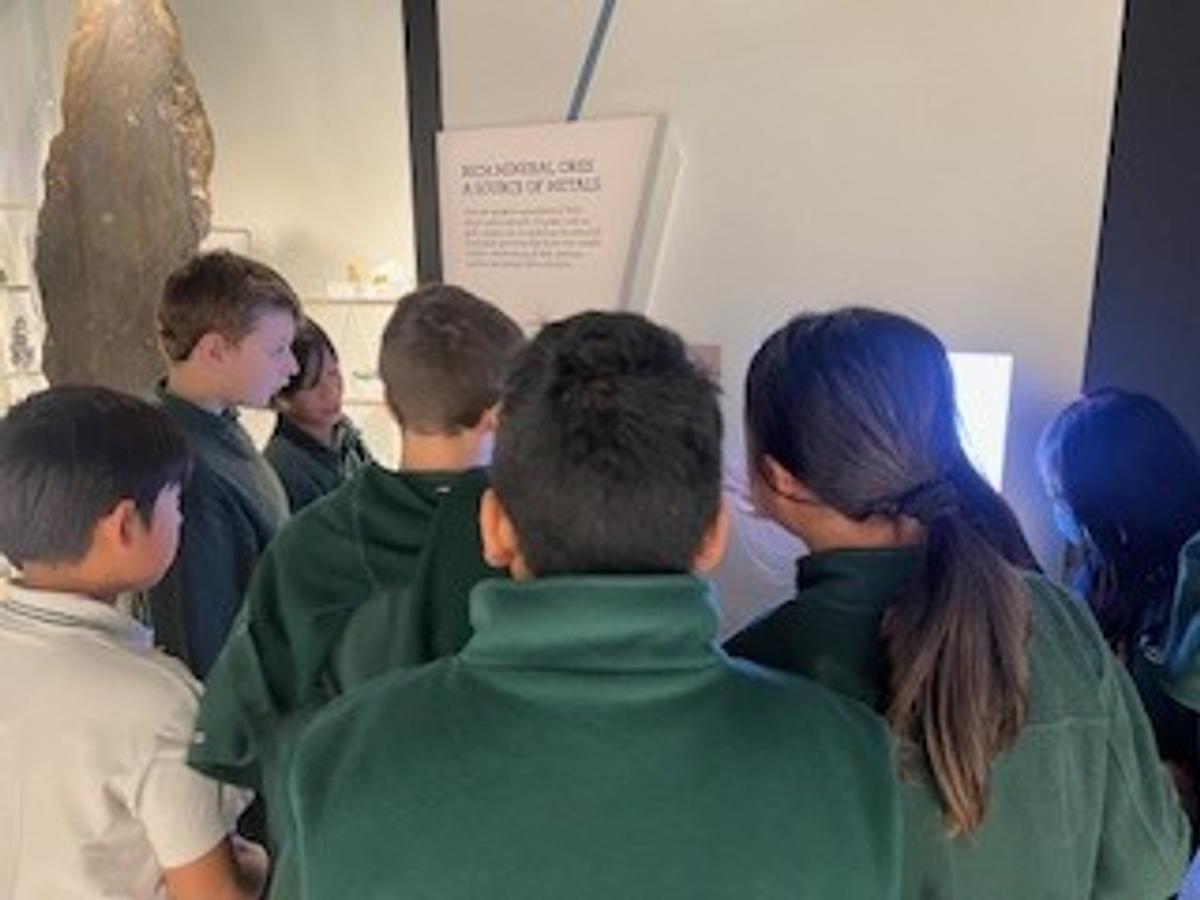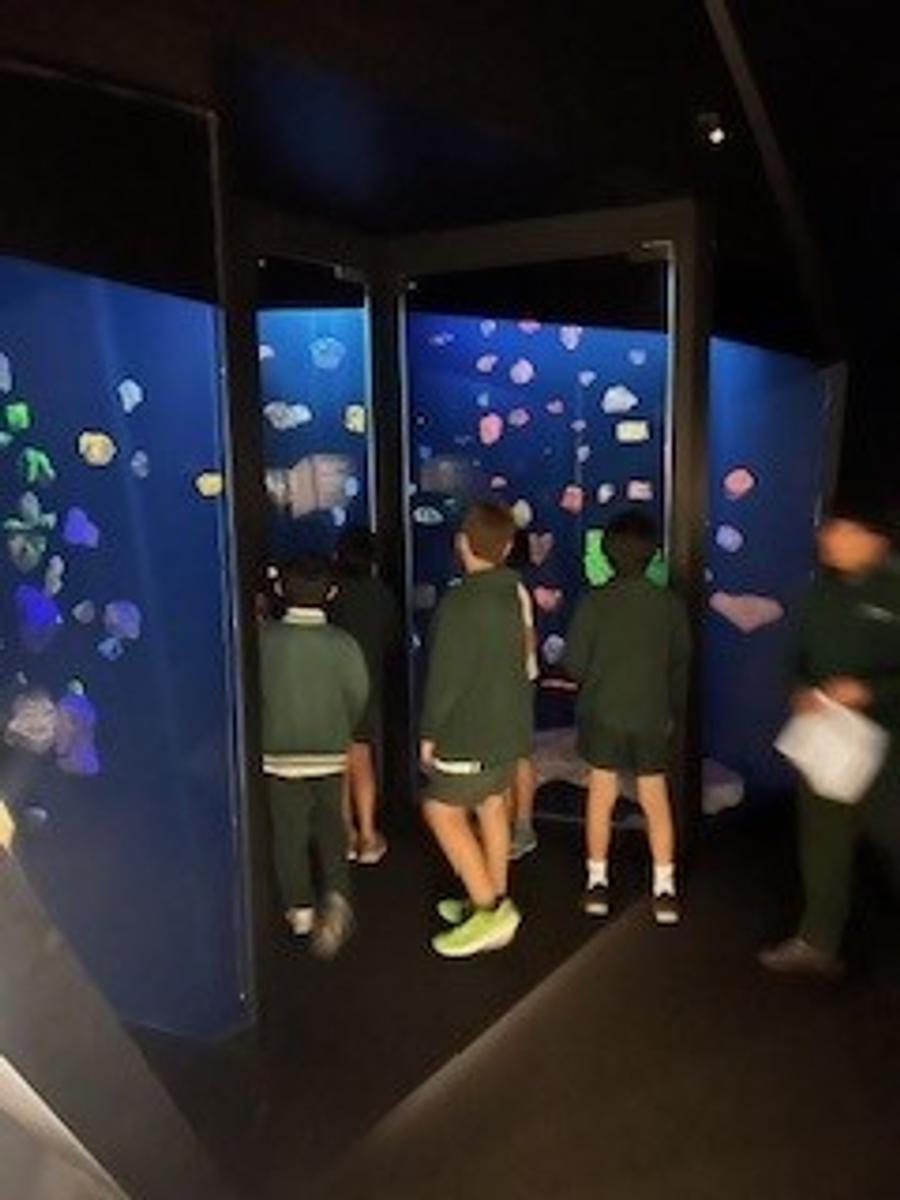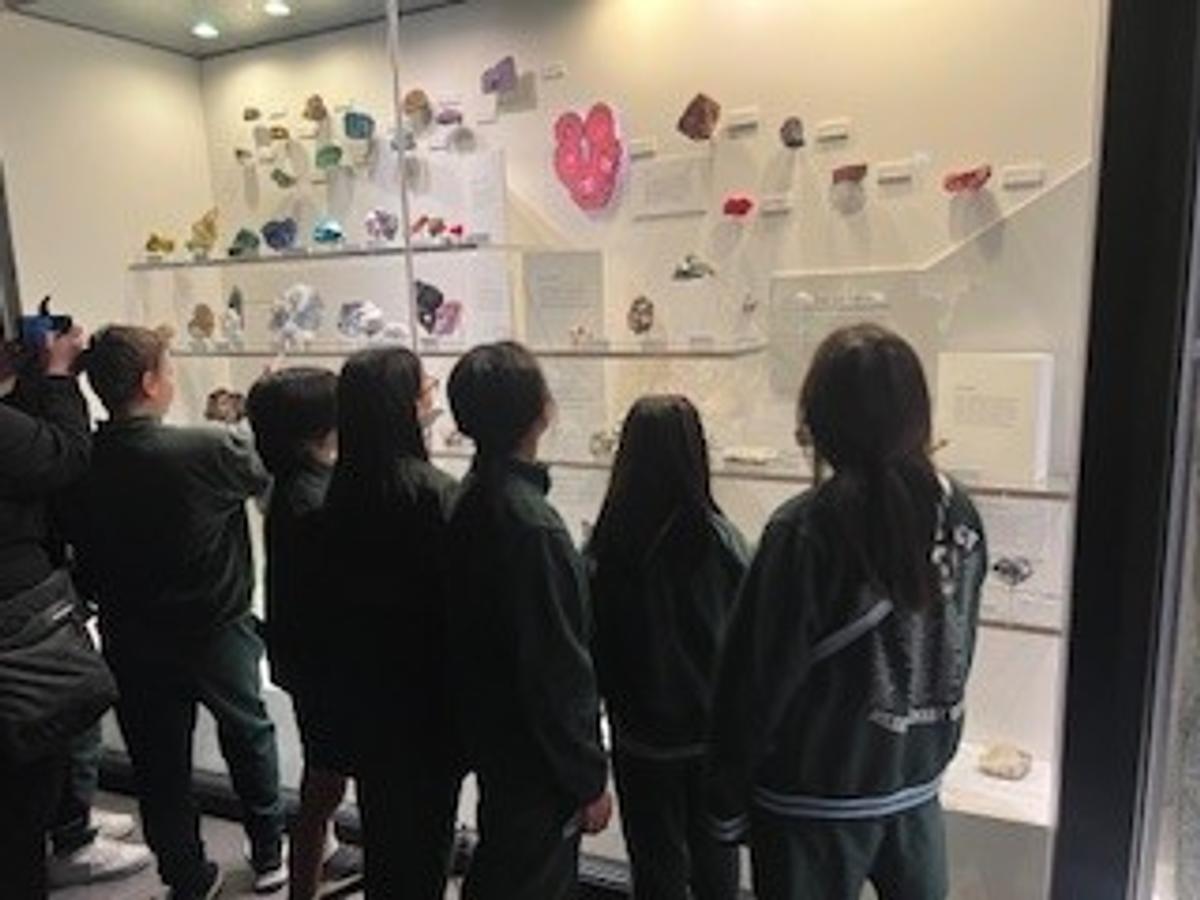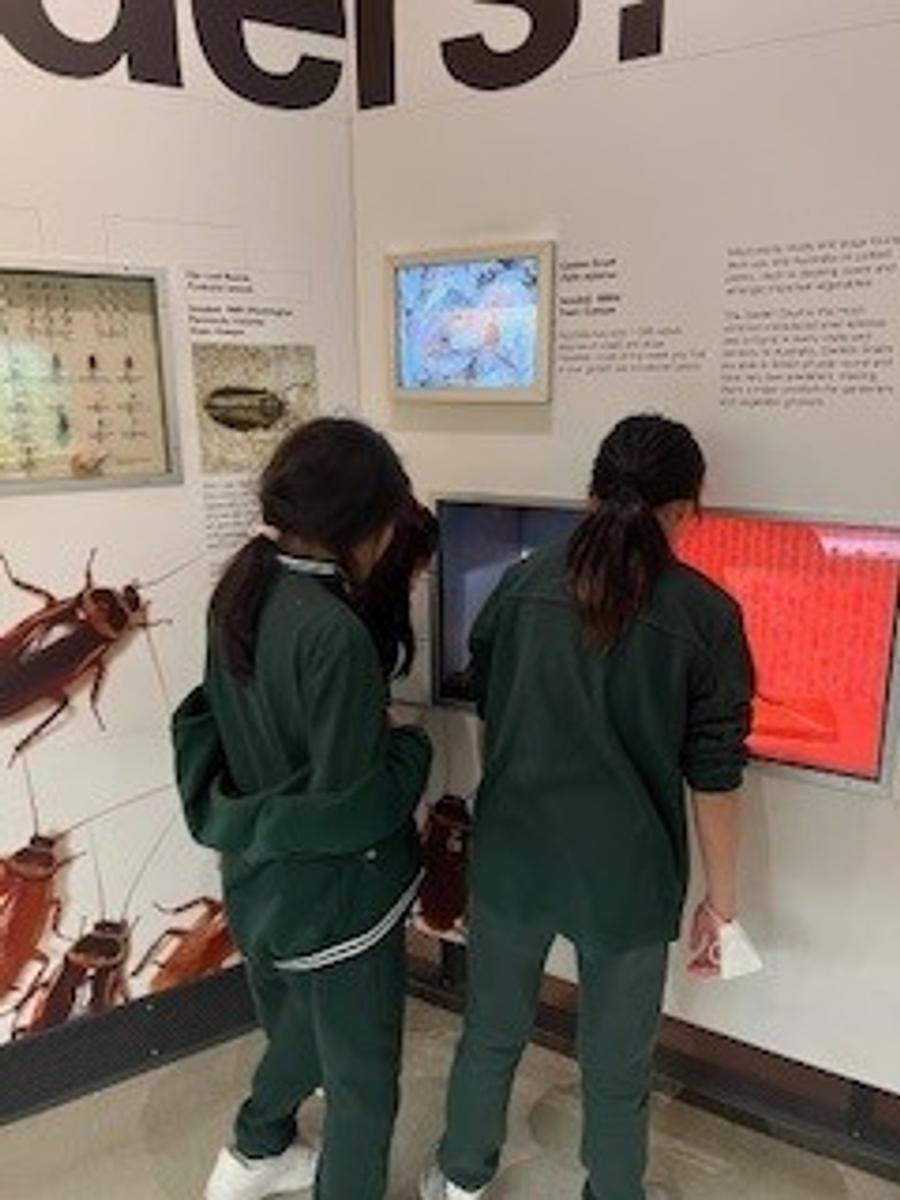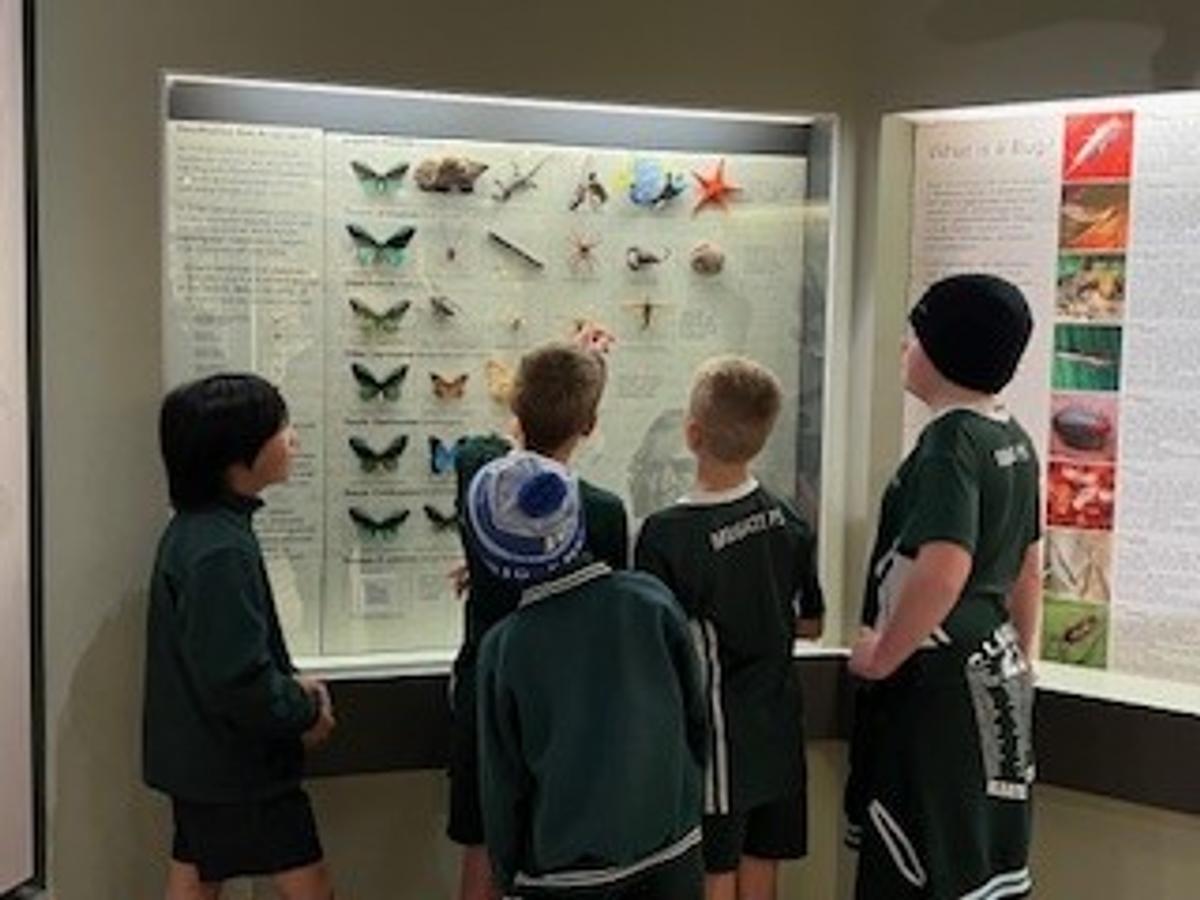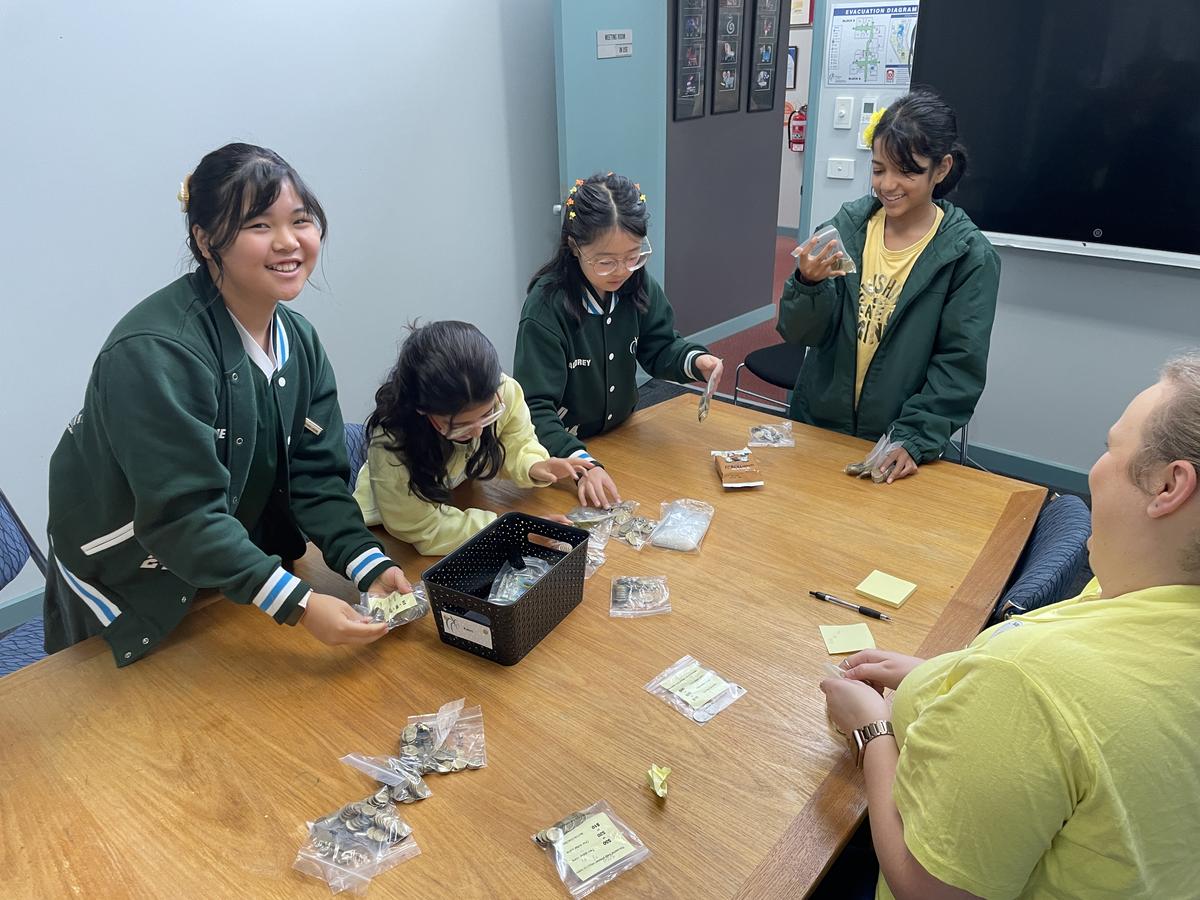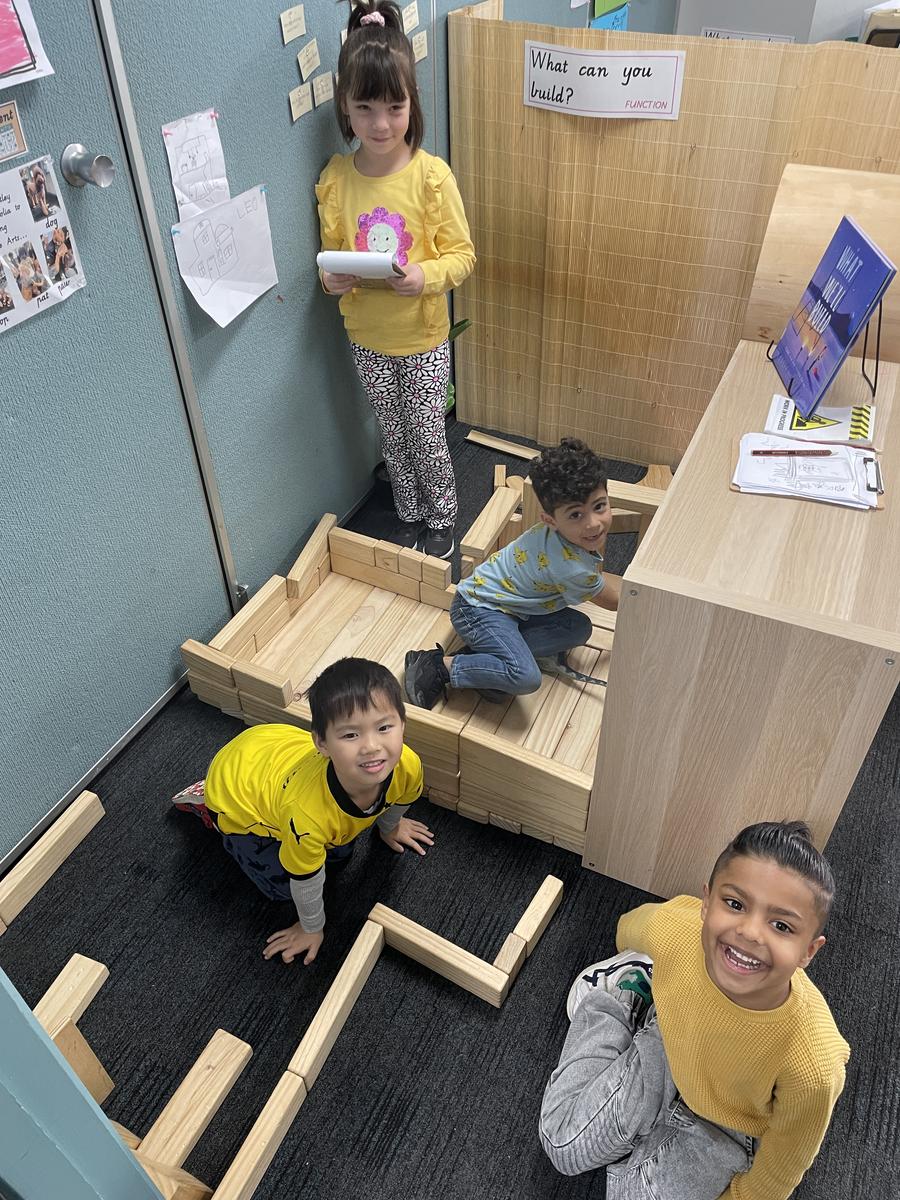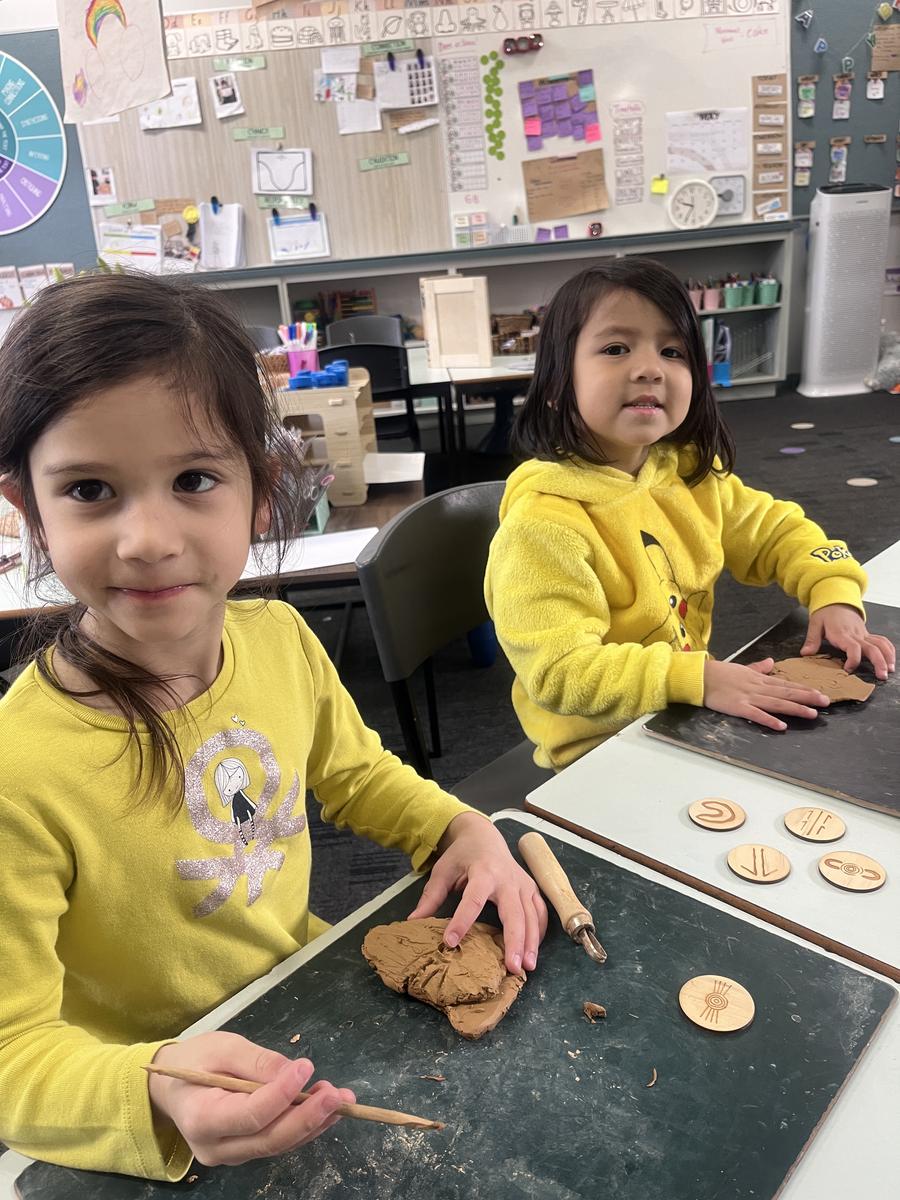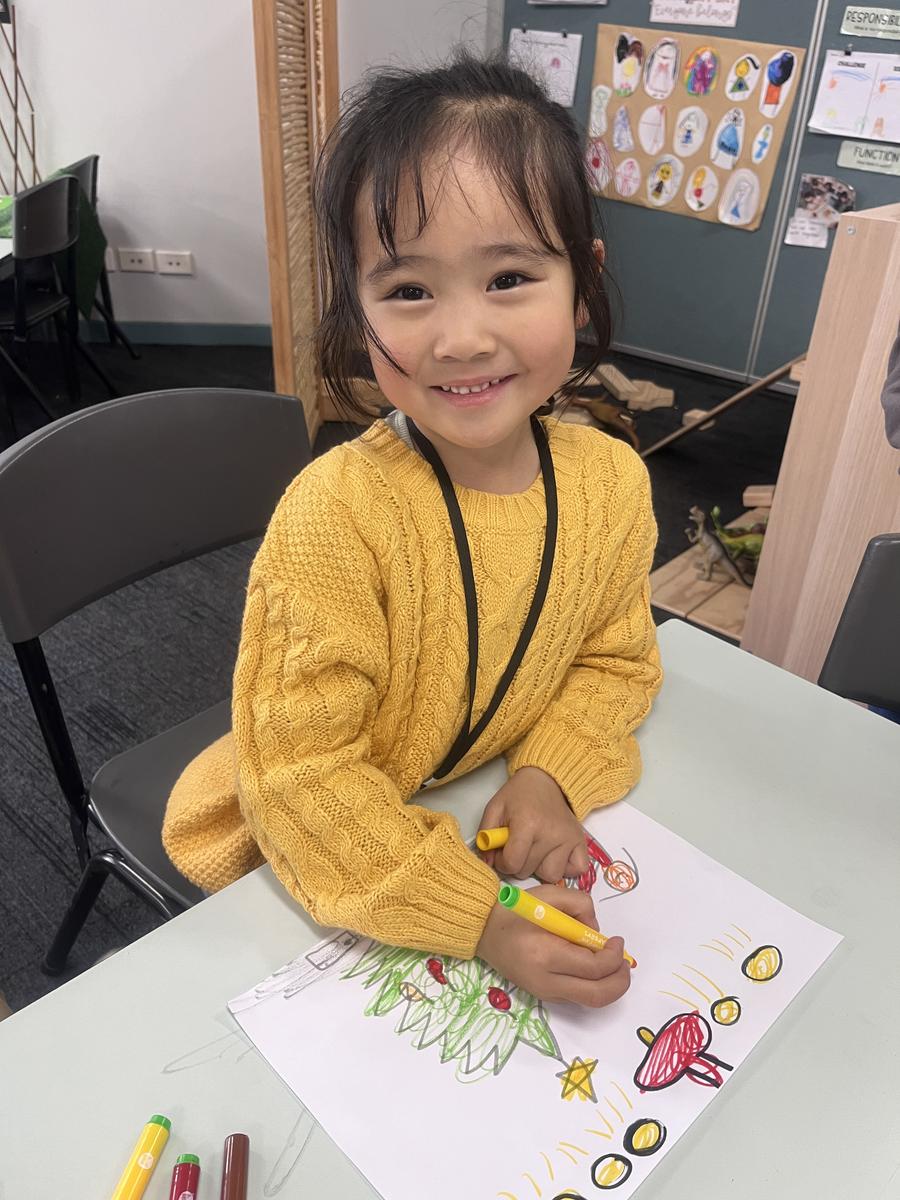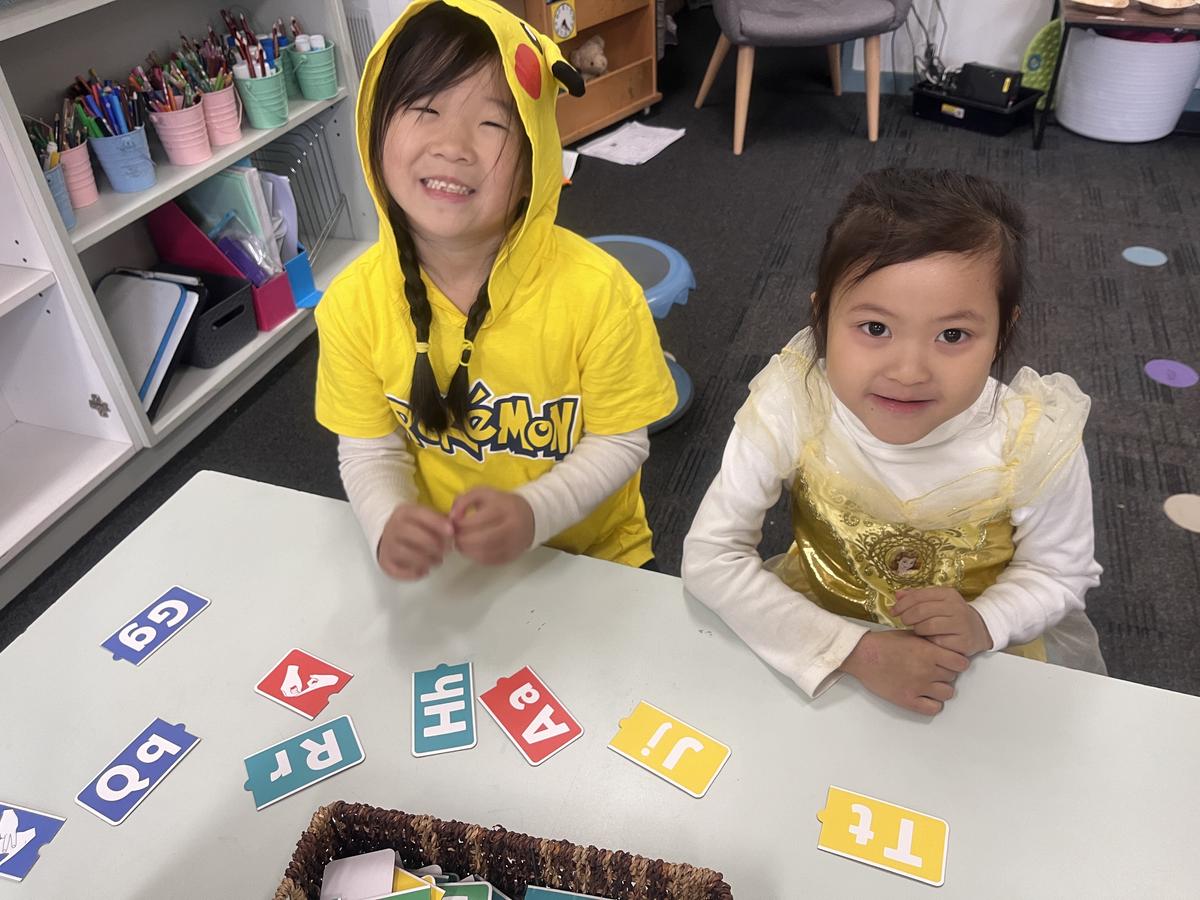PRINCIPAL'S REPORT
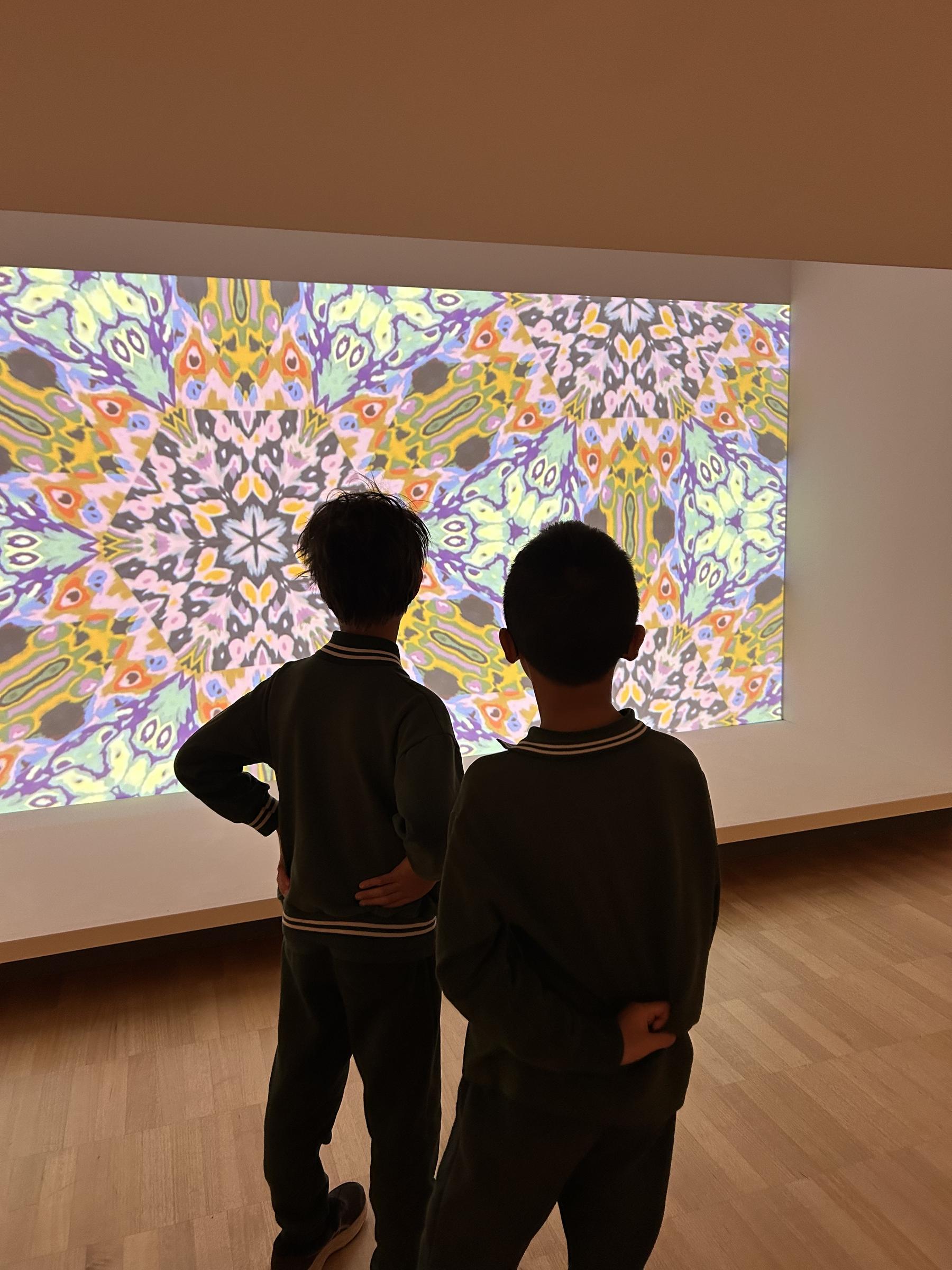
ACKNOWLEDGEMENT OF COUNTRY
Milgate Primary School would like to acknowledge the traditional owners of the land of the Wurundjeri People and we would like to pay our respects to the elders both past and present. Staff, students and the school community understand that we thrive, learn and live on Wurundjeri Country and we stand with all cultures united as one.
YEAR 5 EXCURSION | IMAX & MELBOURNE MUSEUM
On Monday, as part of our How the world works inquiry, Year 5 students visited Melbourne Museum. They were able to watch The Story of Earth in 3D and also Deep Sky in Imax, discovering more about Earth and the solar system. Students then had the opportunity to explore the Dynamic Earth, 600 Million Years and Dinosaur Walk exhibits. They used this experience to create and research their independent wonderings. A big thank you to all of our wonderful parent helpers.
WEAR IT YELLOW DAY
On Thursday the 30th of May Milgate Primary School students supported Children’s Ground in their Wear it Yellow Campaign. This campaign is held during National Reconciliation Week (27th of May to 3rd of June) to encourage conversation and celebration of First Nations culture, knowledge and strength.
The theme for National Reconciliation Week this year is Now More Than Ever and it was wonderful to see so many students get involved in wearing yellow and deepening their understanding of First Nations culture.
Well done Milgate for raising $576.00 for a great cause!
DISCOVERY DAY - FOUNDATION 2025
Today, we held our first Discovery session for prospective 2025 Foundation students. Kinder children were invited to participate in fun, hands-on learning activities in the classrooms with some of our Foundation teachers. These fantastic sessions provide children with an opportunity to explore and experience school life in the classroom context while building their confidence and enthusiasm toward school.
Throughout Term 3, we will also have ‘Storytime’ sessions held in the library. Our Foundation teachers and our Library Technician will engage the students in some wonderful stories and fun activities. Storytime sessions will be held on the 2nd, 9th, 16th and 23rd of August.
EXHIBITION ACTION
Our Year 6 students are currently planning and implementing actions as part of their Exhibition inquiries. Throughout the year, you may see notices indicating that some action is taking place or asking for support with action. Here is an example of one taking place this term.
For our Year 6 Exhibition we are taking action against deforestation and collecting bottles and cans (to save them from the garbage can and exchanging them for 10c each) and all the money that we make will be donated to Green Fleet, an organisation that plants native Australian trees.
You can leave your bottles and cans just inside the Manuka building main entrance, there will be a labelled box for it. We will have finished collecting all the bottles by the end of Term 2.
Thanks in advance for your support!
From: Zara, Queenie, Emma, Claire
MONSTER COMMUNITY RAFFLE
Manningham has held the Monster Community Raffle as an annual event for over 18 years. The raffle is proudly supported by the Templestowe Bowling Club and there is an incredible $10,000 worth of prizes on offer.
Milgate is selling tickets this year as a great opportunity to fundraise for our school and the Manningham Community Fund. We will receive $1.50 for every $2 ticket sold!
Tickets went home this week with the eldest child from each family this week. Please ensure the money and ticket stubs including unsold tickets are returned to the office in a clearly labelled envelope/ziplock bag by the end of this term. The school will be putting the money raised to beautifying the school grounds as part of our fundraising goals for this year.
PUBLIC HOLIDAY 10 JUNE | NO SCHOOL
We have an upcoming public holiday on Monday 10 June. We hope everyone has a wonderful long weekend and look forward to seeing everyone back to school on Tuesday 11 June.
MATHS GAMES & CELEBRATION OF LEARNING
On June 26, we will be holding our Celebrations of Learning afternoon, where students will share their learning with their families and then teach them a maths games that they have played in class. Mathematical games and puzzles foster students’ development of procedural fluency. They generate mathematical discussions as strategy and skill are central to the development of conceptual understanding and explicit mathematical connections. There must be an equal amount of skill and luck in the game for mixed ability grouping. To ensure that appropriate games and puzzles are chosen to extend understanding and proficiency of mathematical concepts, Russo, Russo and Bragg (2018) recommend five things to look for:
- Principle 1: Mathematical games should be engaging, enjoyable and generate mathematical discussion
- Principle 2: Mathematical games should appropriately balance skill and luck
- Principle 3: Exploring important mathematical concepts and practising important skills should be
central to game strategy and gameplay - Principle 4: Mathematical games should be easily differentiated to cater for a variety of learners,
and modifiable to cater to a variety of concepts - Principle 5: Mathematical games should provide opportunities for fostering home-school connections.
We encourage families to explore this website Love Me Maths Games for some excellent games that you could play at home to consolidate key mathematical concepts.
WELLBEING
Thank you to the school community for their valuable input in creating the Tiered Response Model. All the suggestions have been added to the model and it will be introduced to our students in Week 8. Through the development and implementation of the model, teachers will have a consistent response to student behaviour and incidents.
Responding To Student Behaviour
“What we must always keep in mind is that behaviour is not the problem. behaviour is what tells us there is a problem.” - The Brain Behind the Behaviour
Behaviour is incredibly complex. It is purposeful, communication, and most importantly, it is a symptom of the problem, not the problem itself. When a child is exhibiting undesirable behaviour, it is important to look for the root cause of the behaviour. Is it a skill deficit? Is it communicating an unmet need?
When teachers work with students after a behavioural incident, they begin having a Restorative Chat. A restorative chat starts by checking in with all the students to ensure they are ready for a calm conversation. Each student is provided time to discuss their version of the incident without interruption. The teacher will ask clarifying questions. Each student will be encouraged to take accountability for their part in the incident. Once it has been established what has occurred, students will reflect on how they felt and how the other students who were affected may have felt. Students will then discuss what they could have done differently. This is now a teachable moment. The students might practise what could have been said, different actions that could have been taken, what they can do if they feel big emotions, or seek adult assistance. Finally, the students will discuss how to authentically resolve any harm caused and take action on this. Through this resolution, the consequence for the student will be linked to the action taken to ensure that the student connects the behaviour with the consequences.
It is important after there has been a behavioural incident to check-in with the students involved. It can involve reminders before play, continuing practising skills, or checking-in to ensure no further incidents have occurred.
Teaching Behaviour
When a child has a deficit in their academic performance, we teach. When a child has a deficit in their behaviour, we teach.
Each week, teachers will work with their teams to analyse their classroom behaviour and discuss points of need to be taught. They discuss authentic ways to explicitly teach the behavioural skills in the appropriate context. The year level focus is in the weekly Learning Update.
Consequences
Consequences play an important role when working with behaviour. When we are talking about consequences, we are not looking at punitive punishment. Research has shown that punitive punishment has a detrimental effect on student’s connection, self-esteem and academic performance. Furthermore, punitive punishments do not teach the skills to behave differently. Consequences are what occur following the behaviour, which can be positive or negative. For example, a student calls out and his peers laugh. The consequence is that they have received attention from their peers. If a student is seeking peer attention, how can we as the teachers encourage and support this in a way that is not disruptive to the class?
As stated above, if a teacher is applying a consequence it needs to be logical. It needs to repair the damage that has occurred. For example, if a student damages another student’s work, the logical consequence would be that they fix the work or help to create a new piece. Along with this logical consequence, would come teaching about effective communication or emotional regulation and practising those skills.
LANGUAGE ARTS
Thank you to those parents who have already signed up to attend the parent/carer information session with writing consultant, Matt Glover. If you have not yet signed up to the event, you can find the link here.
Over the past four years, Matt Glover has collaborated with Milgate, lending his expertise to support our writing curriculum and enhance student literacy. On the 12th of June, we are thrilled to announce another exciting parent and carer information night as Matt returns to Australia. Gain a deeper understanding of your child's writing journey at Milgate as Matt Glover shares insights into our curriculum and practices during his visit and parent information night!
Where: Milgate Primary School, Manuka Building
When: 12th June
Time: 6:00pm - 7:00pm

